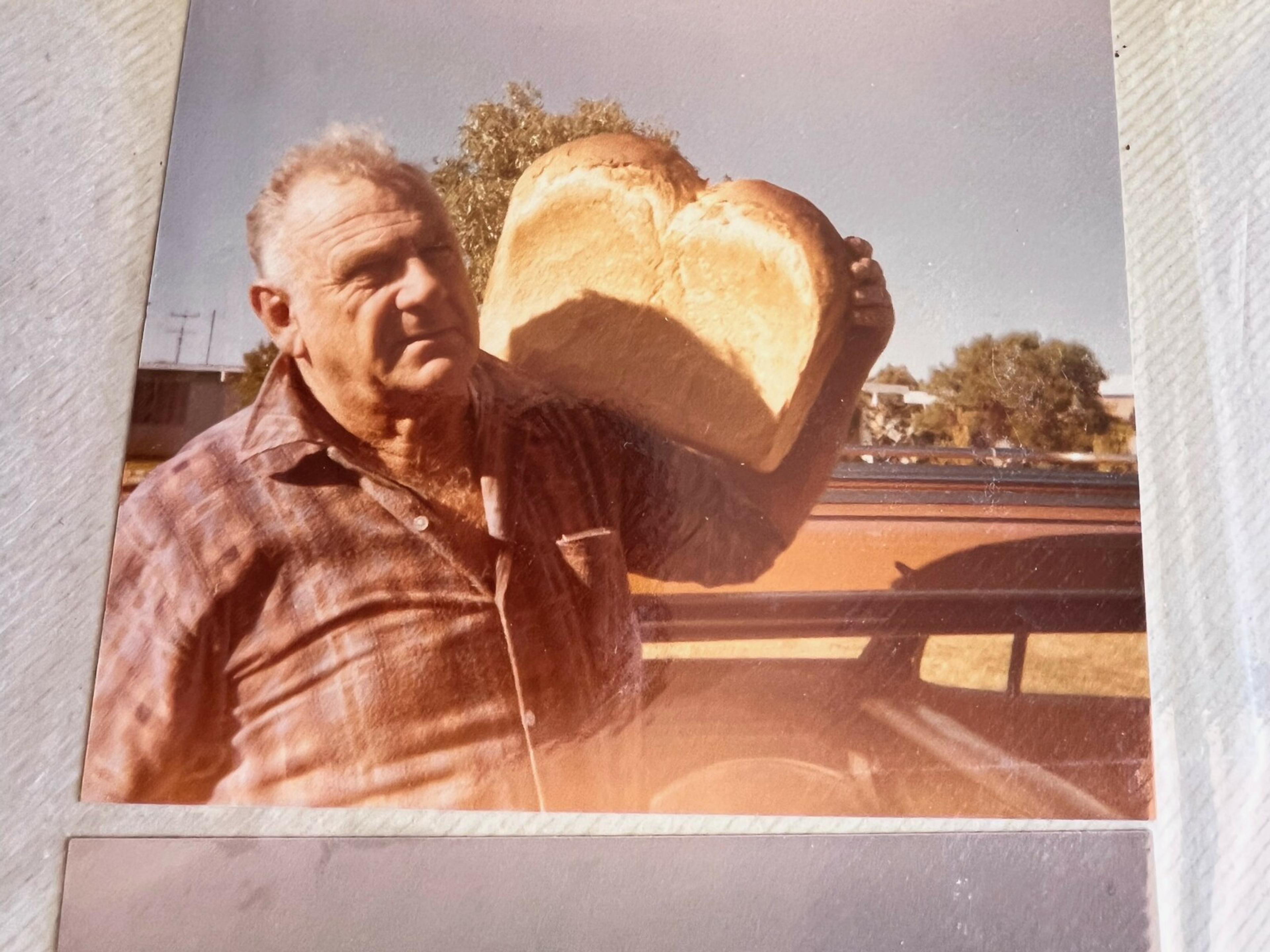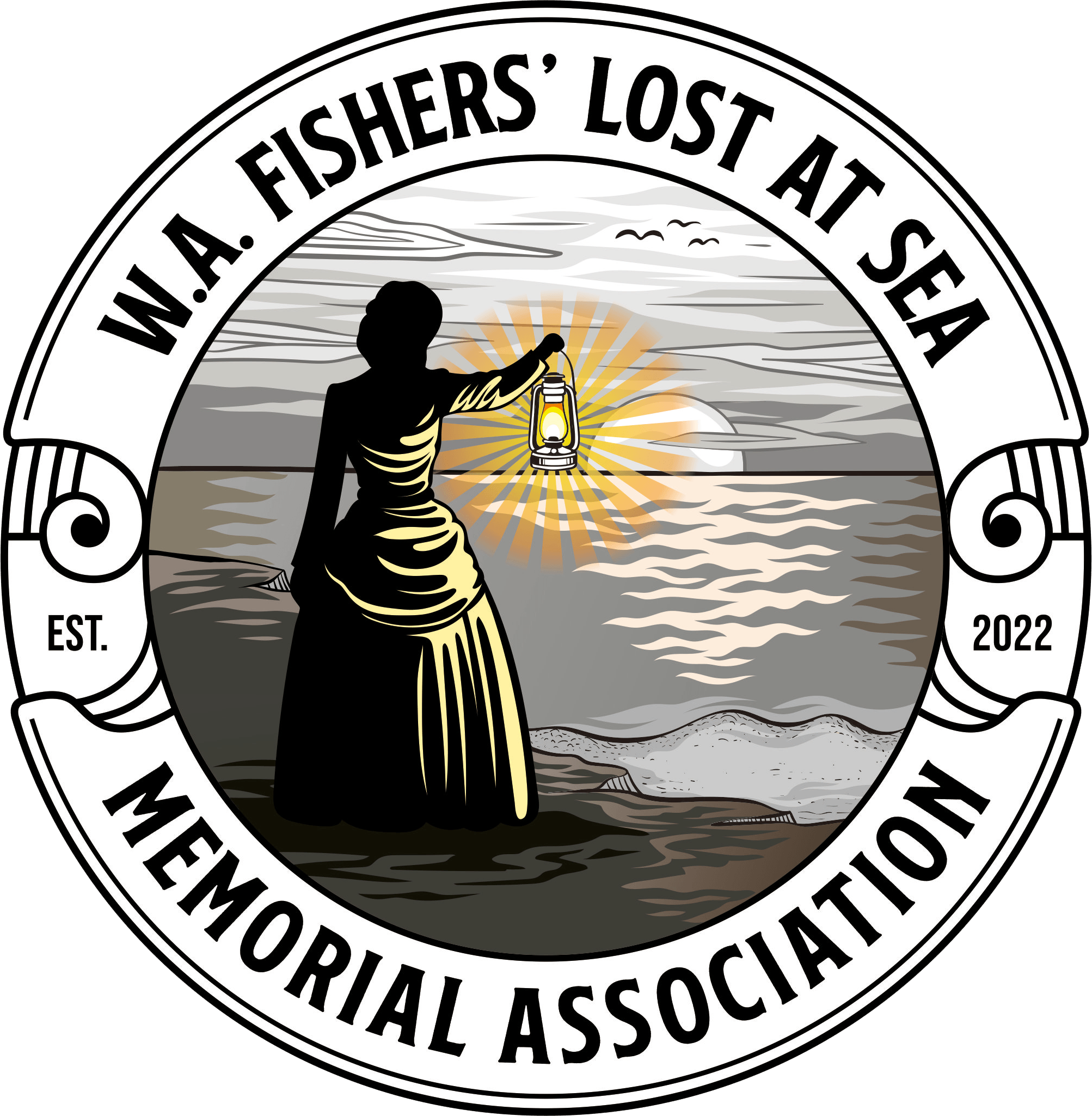Catchpole Family
Country of Origin: Australia
W.A. Region Settled: Mid-West
This story is based on the oral history of William Catchpole, Lancelin’s first baker.

Bill Catchpole. Photo courtesy of SLWA.
Bakeries were taking over everywhere in Perth in 1963, so it was it was time to get out.
My friend Lionel Cooper went up to Lancelin with a van load of bread one weekend, and when he came back I asked him how he went. He said he could have taken three van loads full of it.
So I went up there have a look. I took the back way through Gingin which was a graded dirt road. Then a sand track to Lancelin. There wasn't much there. It was pretty primitive, like a ghost town and I was not very impressed. I went to George Snaden's shop to enquire about bread and everyone I talked to was pretty enthusiastic about me going there. I had a drink at the pub and then went back to Perth - all in one day.
The next time I went to Lancelin I'd decided to go there. I called in to see Norm Wallace and he gave me the green light to go ahead with whatever I thought was right. George Snaden said that he was building a new store and garage, so I could rent his old shop - which I did. For some years I lived in a hut opposite the Shell store. There were a lot of huts there for fishermen mainly.
Some of the names I remember include Peter the Pom - he reckoned everything British was best. There was Alan Walkerden. Victor Muran, Jo Borokas and Billy Johnson from the Freya (which later sank in a storm). Jo Tatham was on the Jenny Lind and George Anicich off the Elsie. I think Laurie Tatham had a hut too.
There were also quite a few families living around the town in their own houses. The resident population of Lancelin then would have been about two hundred, with a few dogs thrown in. (laughter).
When I first arrived I worked for six weeks in the Fish Factory while I renovated the shop. I didn't have to do much. The only thing I done was put in a few windows and a concrete floor over the duckboards. I'd bought an oven with a motor up from an old bakery in Higham, which cost me a hundred and ninety pounds. Terrible oven it was too.
The power to the bakehouse came from George Snaden's factory and it only used to come on at certain times. It wasn't very convenient. The power wouldn't start until 8 or 9 o'clock in the morning. Then quite often I'd be trying to pull out the last batch in the oven and the lights would go out.
I thought about converting the oven to wood but I would have had to cart the wood myself and have wood stacks here which might have been a nuisance.
The first loaf of bread I made at Lancelin was bought by Mrs. Walkerden. I only made about ten loaves on the first day and sold it all without any problem. After that it was Christmas and I baked ten dozen rolls for a party in George Snaden's factory.
Clarrie Bateman came in to the bakehouse with a jug of beer and invited me back to the party and that was the end of baking for the day. Practically everyone from the town was there - the Batemans, the Frys, the publican Richie Thomas and his wife, and Peter the Pom of course.
My best customers were the Italian fishermen. It was two loaves to every boat and the crew would come and pick them up. They'd pay me once a month on the full moon or something. All the fishermen were good payers. It was only a few locals who would try to put it over me in the winter months when money was tight. Not mentioning any names.
Flour, fuel, and whatever we needed came up on Ray Binnington's truck which came up two or three days a week. Cockroaches in the flour were always a problem.
Bees also caused a funny problem. On Sundays, especially in summer, a flock or herd of bees, or whatever you call it, used to swarm around my sweet breads and buns. I don't know how the bees got there because there were no trees around. Must have come to Lancelin on a holiday! (laughter)
I soon found out that laying a cement floor over the duckboards at the bakehouse was a mistake, because at high tide, you'd get a bakehouse full of water which was a bit embarrassing. The duckboards allowed the water to disperse through.
After two years of cleaning up after floods I thought "that's it, I've had enough". So with the help of Peter Salvier and his semi-trailer, we shifted the whole plant in a day, into a new bakehouse I was building on Gingin Road. It had floors and a roof but no windows, doors, or toilets. These things were installed as I went along.
One day a foreman from the Main Roads Department came into the bakehouse looking for workers. I put myself in for that job. He wanted twenty local men but he ended up only getting one, me. The others were all too busy playing golf. For twelve weeks I baked at night and worked on the road during the day.
"I done the posts into town, put them in, and painted them."
Once the road was finished we got many more day trippers and tourists coming to Lancelin, mainly during the crayfishing season. From our new house in Cunliffe Street, we could see the lights of the cars coming in on the long weekends from our kitchen window. In those days they used to travel in convoys and would arrive in spasms.
I was married by then and had four children. Before Cunliffe Street we'd made more room in the hut by turning the kitchen into a bedroom and using the bakehouse as our kitchen. A hut was normally one bedroom, a living room, and a kitchen. Half of them weren't even lined. They were terrible actually and would often flood.
The kids started school at Bedford Park, then when we shifted into the house they went to Lancelin school. The Headmaster was Eddie Nelson, he was there for quite a few years.
Eventually the storekeepers got hold of all of my customers and took control of me which I didn't like very much. Telling me what prices to charge and what discount to give them. When Tip Top came in and canvassed them all I said ...
"Well, that's it, I've finished, I'm out, I give up, I yield!"
We ceased baking on ANZAC day in 1987 and left Lancelin to live in Perth.
One day I got a nice letter from the Shire more or less praising me for what I'd done on account of bringing a bakery to Lancelin and also to say that a road was to be named after me - Catchpole Place.
Words failed me. I never expected that.
Story Contributors
William Catchpole
References
[Interview with William Catchpole] [sound recording] / [interviewed by Margaret Hamilton]. Available at State Library of WA
